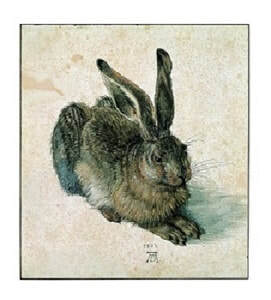David Tickner's Blog, page 14
April 28, 2023
Tattoo
 In English, a tattoo was a drumbeat before it was a design on the skin.
In English, a tattoo was a drumbeat before it was a design on the skin.The word tattoo came to English in the 1680s from Dutch taptoe (tap = the faucet of a cask + toe = to shut). The taptoe was a signal sounded by trumpets or drummers informing innkeepers to stop serving beer and calling soldiers or sailors back to their barracks.
By 1755, tattoo referred to a drumbeat. Later, tattoo referred to a formal military musical performance, for example, the Royal Edinburgh Military Tattoo performed annually on the grounds of Edinburgh Castle.
The word tattoo also appears in English in 1769 referring to a pigment design in the skin, first attested by Captain James Cook, the British naval officer and explorer. This version of the word tattoo comes from Tahitian and Samoan tatau and Marquesan tatu (puncture, to make a mark on the skin). The verb ‘to tattoo’ also appears in English in 1769.
Image: The British Army, Royal Edinburgh Military Tattoo.
Reference: Online Etymological Dictionary, https://www.etymonline.com/
Published on April 28, 2023 21:06
April 25, 2023
Wine
 Wine is another word close to heart and home that comes to English almost unchanged over thousands of years. Wine has always been wine.
Wine is another word close to heart and home that comes to English almost unchanged over thousands of years. Wine has always been wine.The word wine has its origins in Proto-Indo-European (PIE) uoin-a (wine), the source of Latin vinum. Proto-Germanic winam, borrowed from Latin vinum, is the source of Old Saxon, Old Frisian, Old High German win, Old Norse vin, Dutch wijn, German Wein, and Old English win (wine).
PIE uoin-a is also the source of other words for wine such as Greek oinos, Arabic wain, Hebrew yayin, Old Church Slavonic vino, Polish wino, Russian vino, Welsh gwin, Old Irish fin, Gaelic fion, and others.
Cheers!
Reference: Online Etymological Dictionary, https://www.etymonline.com/
Published on April 25, 2023 20:15
April 21, 2023
Earth
 Earth Day, 22 April 2023.
Earth Day, 22 April 2023.When was our planet first called Earth?
Earth is one of many English words related to heart and home that have come to us almost unchanged in hundreds, if not thousands, of years.
The word earth has its origins in the Proto-Indo-European (PIE) root er (earth, ground) and Proto-Germanic ertho, the source of Old English eorthe (ground, soil, dirt, country, district).
The word earth came to English before the 12th century from Old English. By the early 15th century, Earth was the everyday name for the place where we live. However, no one really knows when the word Earth first referred to the planet instead of the ground that we walk upon.
In the academic discourse of the 15th and 16th century Renaissance, the Latin or scientific name for our earth as a planet revolving around the sun was Terra Mater (Mother Earth), the goddess of the earth in ancient Roman mythology.
In Greek mythology, Gaia was the name for the mother earth goddess. Gaia is the origin of Greek geo (earth) which is the source of words such as geology, geography, geometry, and many others.
Even though we still use the poetic or relational term ‘Mother Earth’, Earth is now both the common name and scientific name of our planet.
Earth Day was first celebrated on 22 April 1970 and is considered the birth of the modern global environmental movement.
Reference: Online Etymological Dictionary, https://www.etymonline.com/
Published on April 21, 2023 20:23
April 18, 2023
Mandate
 Have you noticed the word mandate lately? What is the difference between the noun mandate and the verb ‘to mandate’?
Have you noticed the word mandate lately? What is the difference between the noun mandate and the verb ‘to mandate’?The noun mandate has its origins in the Proto-Indo-European (PIE) root man-(2) (hand) + the PIE root do- (to give); i.e., to give a hand.
From these PIE sources comes Latin manus (hand) + dare (to give); i.e., mandare (to give into one’s hand; to order, to commit to one’s charge). The noun mandate came to English around 1500 meaning a command, a judicial or legal order. The adjective mandatory, meaning the nature of a mandate, is from the 1570s. Mandatory meaning obligatory is from 1818.
Mandate, in the sense of voters giving a mandate to the winners of an election, is from 1796. Mandate, used by the League of Nations to mean the authorization to administer and develop a territory for a specified purpose, is from 1919.
The verb ‘to mandate’, meaning to command, is from the 1620s. Mandate, meaning to delegate authority to act on behalf of a group, is from 1958.
In this context, how might we interpret the current slogan, “Mandate freedom”? Does this mean “Command me to be free” or “You are commanded to be free”? Both statements seem somewhat contradictory. Or, is there a preposition missing before the noun mandate; e.g., “Freedom from a mandate”? That is, “You can’t tell me what to do” or “You’re not the boss of me.”
I am reminded that the word slogan came to English in the 1670s from Gaelic sluagh-ghairm (a battle cry used by Scottish Highland or Irish clans). Regardless of the meanings and uses of the word mandate, the slogan “Mandate freedom” seems to be more an expression of strong emotion and less a concern with etymology!
Other words related to Latin manus (hand) include command, demand, emancipate, manage, manicure, manipulate, manual, manufacture, remand, and many others.
Reference: Online Etymological Dictionary, https://www.etymonline.com/
Published on April 18, 2023 19:44
April 16, 2023
Modern
 When did things start being modern? How long do things stay modern? How modern is modern?
When did things start being modern? How long do things stay modern? How modern is modern?The word modern has its origins in words meaning ‘the usual way things are done now in a routine or certain way’. To say that something is modern is to say that this is now the way it is. In Shakespearean English, the word modern had the sense of the everyday, the ordinary, the commonplace.
The adjective modern, meaning ‘now existing’, appears in English around 1500. Modern, meaning ‘pertaining to present or recent times’ is from the 1580s. The word modern has its origins in Latin modernus (modern; just now, in a certain manner) and the Proto-Indo-European (PIE) root med- (to take appropriate measures).
In historical terms, modern means not ancient or medieval (which is interesting, given that Latin modernus is an ancient word!). By 1808, modern meant not antiquated or obsolete, but in harmony with present ways.
The term ‘modern English’ is from around 1600. The term ‘modern languages’ is from the 1690s. Modernism, as a deviation from the ancient and classical manner, is from 1737. Modern languages, as a field of study, is from 1821. Modern art, in contrast to ancient or traditional art, is from 1807. By 1897, a person who was modern was ‘up to date’. Modern dance is from 1912. Modernism in art is from 1924. ‘Modern’ household conveniences are from 1926. Modern jazz is from 1954.
Things seem to have been ‘modern’ for a long time!
What about ‘post-modern’ (from 1919) or ‘post-modernism’ (from 1977)? The term post-modern architecture is from the 1940s. Post-modern in relation to the arts is from the 1960s. The term post-modernism has been defined as “the contemporary movement of thought which rejects … the possibility of objective knowledge” and is therefore “skeptical of truth, unity, and progress” (Online Etymological Dictionary, postmodernism).
In brief, it would seem that to be modern is to be content with the ways things are. To be post-modern is to live in a world in which uncertainty and ambiguity appear to be usual and ordinary.
Since ancient times, things have been modern. Every now and then over the centuries, dare I say, that forms of post-modernism have nudged people into new forms of modernism.
How about neo-modern? Or, why not just stick with modern?!
Reference: Online Etymological Dictionary, https://www.etymonline.com/
Published on April 16, 2023 09:26
April 11, 2023
Candy
 Candy has been around for a long time.
Candy has been around for a long time.The word candy has its origins in Sanskrit khanda (piece of sugar) and, perhaps, Tamil kantu (candy) or kattu (to harden, condense). These terms are the source of Persian qand (cane sugar) and Arabic qandi.
The word candy came to English in the late 13th century from Old French cucre candi (sugar candy) and from Arabic qandi.
What’s the difference between candy and sweets? In Britain, a distinction is made between candy and sweets. Candy refers to sweets made from boiled sugar and then resolidified (e.g., hard candy), often striped in bright colours. Sweets, on the other hand, are any confection having sugar as a base; e.g., toffee, chocolate, baklava, gulab jamun, and so on.
By the late 19th century, the US word candy, meaning any confection having sugar as its basis (e.g., candy bars), encompassed both British terms—candy and sweets.
Reference: Online Etymological Dictionary, https://www.etymonline.com/
Published on April 11, 2023 00:00
April 7, 2023
Rabbits, Hares, Coneys, Bunnies
 A rabbit is a baby coney. What most people call rabbits are actually hares except for an animal called the Belgian Hare which is actually a coney. Coney is also a rude slang word for a female body part which is why you don’t often hear the word anymore. A bunny was also the name for a squirrel. Aren’t words fun?!
A rabbit is a baby coney. What most people call rabbits are actually hares except for an animal called the Belgian Hare which is actually a coney. Coney is also a rude slang word for a female body part which is why you don’t often hear the word anymore. A bunny was also the name for a squirrel. Aren’t words fun?!Hare
The word hare comes from Old English hara and various Germanic sources; for example, Old Frisian hasa, Middle Dutch haese, Dutch haas, Old High German haso—all words of uncertain origin, although some sources suggest the word may have come from words meaning grey.
Hares are native to North America, Europe, and Eurasia. Hares were in North America long before coneys (or rabbits) arrived.
Rabbit or Coney?
A rabbit is to a coney what a cub is to a bear or what a kitten is to a cat.
The word coney, an animal native to Europe (primarily Portugal, Spain, southwest France), came to English around 1200 from Old French coniz and conil and from Latin cuniculus.
The word rabbit, the young of a coney, came to English in the late 14th century. The word rabbit has an unknown origin, possibly from Walloon robete or Middle Dutch robbe.
The coney was imported by colonists to places like North America and Australia. In Australia, the coney is considered an invasive species, a pest rather than a pet.
Over time, coneys became known as rabbits. And, as the word rabbit became more and more predominant, the word hare dropped from common use. The word rabbit came to describe both coneys and hares. Perhaps you could say that the word rabbit bred like a rabbit!
So, what happened to the word coney?
In the Middle Ages, the term coney was also a slang term or punning synonym for cunny (the female sexual organ) and as part of the term connyfogle (to deceive a woman in order to win sexual favors). Given such sexual connotations, by the 14th century the term rabbit increasingly came to be used rather than coney. However, the word coney is in the KJV Bible (Proverbs 30.26) and couldn’t be dropped so the pronunciation was changed from ‘cunny’ to ‘coney’.
Coney Island, the beach resort now part of metropolitan New York City, was named as such in the early 19th century, perhaps for the abundance of coneys descended from those brought to the island by early settlers.
Bunny
The word bunny, a pet name for a rabbit, came to English in the 1680s, perhaps from Scottish bun (the tail of a hare), a term from the 1530s, or perhaps from an unknown Scandinavian source. In the 1580s, the Scottish word bun also referred to a squirrel. By around 1600 the term bun was a term of endearment for an attractive young woman or a child. Still with me?
The ‘Bunny Hug’ (1912) was a popular and scandalous dance of the ragtime era. The term Bunny (a Playboy Club server) is from 1960. If you are from Saskatchewan, you will know that a ‘bunny hug’ is the correct name for what people in other places incorrectly call a ‘hoodie’.
Easter bunny
The term Easter rabbit is from 1888 and Easter bunny is from 1904. The term Easter egg is from 1825; before that the term was pace egg (from Latin paschal = Easter), from the 1610s.
And, finally, if all this talk of rabbits, hares, bunnies, and coneys isn’t confusing enough, how do we explain to children that Easter eggs are delivered by the Easter bunny?
Image: Young Hare, watercolour by Albrecht Durer, 1502
What are some differences between rabbits/coneys and hares? They are two different species of the same animal family. In brief, rabbits burrow in the ground (i.e., rabbit warrens). Hares have a simple nest above ground. Rabbits are born hairless and blind, requiring close care by the mother. Hares are born relatively mature with hair and good vision. Rabbits tend to live in social groups; hares are relatively solitary. Rabbits are smaller than hares and have shorter ears. Hares have larger and stronger hind legs. Rabbits are commonly bred as livestock and kept as pets; hares have not been domesticated.
Reference: Online Etymological Dictionary, https://www.etymonline.com/
https://nationalpost.com/entertainment/why-saskatchewan-calls-a-hooded-sweatshirt-a-bunny-hug
https://www.bbc.com/culture/article/20230403-the-easter-bunny-evolution-of-a-symbol
Published on April 07, 2023 15:21
April 3, 2023
Indict
 Do you ever wonder why we pronounce indict as ‘indite’?
Do you ever wonder why we pronounce indict as ‘indite’?We don’t say ‘verdite’ instead of ‘verdict’ or ‘edite’ instead of ‘edict’? Why is this?
Words such as indict, verdict, and edict have their origins the Proto-Indo-European (PIE) root deik (to show), Latin dicere (to say, to speak), and Latin dictare (to declare, dictate). Latin indictare means to declare, accuse, proclaim in writing.
The verb ‘to indict’ came to English around 1300. However, at that time, the original English spelling of indict was endite from its source in Old French enditer (to dictate, compose; legally indict). The French pronunciation of ‘enditer’ (en + dite) also came to English at this time.
Three hundred years later, scholars changed the spelling of endite to indict in order to reflect the original Latin source indictare. They changed the spelling but they didn’t change the pronunciation.
So, to this day we still pronounce indict as ‘endite’. Looks like, in this case, the spoken word trumped the written word.
Words like verdict and edict didn’t go through such a transition.
Reference: Online Etymological Dictionary, https://www.etymonline.com/
https://www.merriam-webster.com/words-at-play/pronunciation-of-indict
Published on April 03, 2023 22:27
April 2, 2023
Amnesty
 Amnesty and forgetting. When an amnesty is granted, does this mean that wrongs from the past are forgotten?
Amnesty and forgetting. When an amnesty is granted, does this mean that wrongs from the past are forgotten?The word amnesty has its origins in the Proto-Indo-European (PIE) root men-(1) (to think) and Greek mnaomai (I remember). Greek amnestos (forgotten, forgetful) is from Greek a- (not) + mnestis (remembrance); that is, ‘not remembering’.
The word amnesty is related to the word amnesia (loss of memory) which came to English in 1786 from Greek amnesia (forgetfulness, not remembering) and the PIE root men-(1).
Greek amnestos was coined around 400 BCE in Athens to help society recover from a civil war. A similar law related to ending years of sectarian civil conflict was enacted in Scotland in 1560 stating that “a law of oblivion shall be established.” The Treaty of Westphalia (1648) which ended the religious conflicts of the Thirty Years War in Europe called for an amnesty in which particular atrocities “shall be bury’d in eternal Oblivion.”
The English word amnesty (a ruling authority’s pardon of past offenses), from the 1570s, comes from 16th century French amnistie (an intentional overlooking) and Latin amnestia and Greek amnestia (forgetfulness of a wrong). In particular, amnesty usually refers specifically to pardons or offers of pardon for a class of offenses against a government.
It would seem that such ‘forgetting’ would be easier said than done especially if you or those close to you had suffered injustices. How do you forget a trauma? You don’t.
A recent book suggests two ways of describing such forgetting: forgetting as “true forgetting” (e.g., ‘time heals all wounds’) and forgetting as “forgetting about” (e.g., forgetting about revenge or retribution following conflict or trauma). The latter, ‘forgetting about’ seems related to the laws passed by governments so that they or their citizens do not become locked in decades or generations of conflict; for example, “the willed collective amnesia [that] facilitated Europe’s astonishing recovery after World War II” (Francis, 2023). Another option are Truth and Reconciliation Commissions (e.g., South Africa, Canada): tell the truths about what happened and then address reconciliation activities.
Amnesty International was founded in 1961 to call attention to the plight of prisoners of conscience.
Reference: Online Etymological Dictionary, https://www.etymonline.com/
Francis, G. (2023, March 9). The dream of forgetfulness: Two recent books build on an insight…that to live, it is necessary to forget. [Review of the book A primer for forgetting by L. Hyde]. The New York Review of Books, https://www.nybooks.com/articles/2023/03/09/the-dream-of-forgetfulness-primer-for-forgetting-lewis-hyde
Published on April 02, 2023 10:38
March 27, 2023
Corpsing
 What comes to mind when you hear the word ‘corpsing’? Dead bodies?
What comes to mind when you hear the word ‘corpsing’? Dead bodies?Does live theatre come to mind?
The origins of the word ‘corpsing’ are unknown. However, the most likely origins are live theatre productions, notably tragedies or murder mysteries.
What do you think would happen if an actor laying on stage after being ‘murdered’ suddenly sneezed? Or coughed? Or laughed? Sometimes actors have been known to try and make a ‘dead’ actor laugh. Sometimes actors will simply flub or forget their lines and break into uncontrolled giggling.
Quite likely, in such a case, people on stage and in the audience begin to giggle or laugh as well.
In British theatre jargon, corpsing means ‘breaking character’. An actor who is corpsing is no longer in their role.
Image: https://www.youtube.com/watch?v=_42nWRz_C5E&ab_channel=NationalTheatre
Reference: Online Etymological Dictionary, https://www.etymonline.com/
Published on March 27, 2023 14:54



